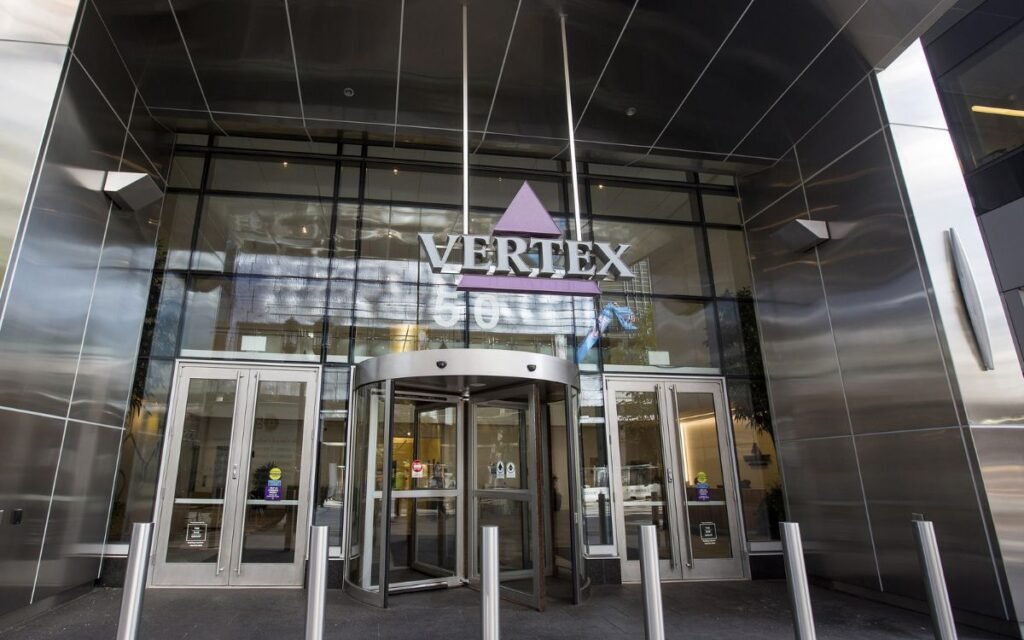Vertex Pharmaceuticals faces a potential reiteration of history in the United Kingdom, where a recent decision by the National Institute for Health and Care Excellence (NICE) has raised concerns about the cost-effectiveness of Vertex’s cystic fibrosis (CF) drugs.
In its draft guidance, NICE acknowledged the effectiveness of Vertex’s CF medications, including Trikafta (known as Kaftrio in the UK), Symkevi, and Orkambi. However, the agency did not classify these medicines as cost-effective.
It’s important to note that this decision is not a final recommendation. NICE clarified that its guidance should not impact the ongoing treatment of CF patients with Vertex’s drugs within the National Health Service (NHS) initiated before the guidance’s publication.
NICE will now enter a four-week consultation period, followed by a second committee meeting to discuss feedback received. During this period, the public and organizations like the Cystic Fibrosis Trust in the UK will have the opportunity to provide input and advocate for CF patients and their families.
Also Read: CRISPR-Vertex’s Gene Editing Therapy Faces FDA Committee Review
Cystic fibrosis is a genetic condition characterized by a defective protein that affects various bodily functions, including mucus and sweat production. This condition results in thick, sticky mucus that can accumulate and lead to damage or infections in organs such as the lungs and pancreas, primarily causing respiratory complications.
Vertex’s flagship drug, Trikafta, combines elexacaftor, ivacaftor, and tezacaftor to improve the function of defective CF transmembrane conductance regulator proteins.
NICE acknowledged that clinical data suggest that Trikafta, Symkevi, and Orkambi can enhance lung function, growth, weight gain, and reduce the frequency of lung infections compared to standard CF treatments. However, NICE indicated that the likely cost-effectiveness estimates for these drugs fall outside the acceptable range for the utilization of NHS resources, considering the severity of the condition.
Vertex has not yet provided a response to NICE’s draft guidance.
This situation bears resemblance to a longstanding pricing dispute between Vertex and the NHS over drugs like Orkambi, which was ultimately resolved in 2019 through a four-year government reimbursement agreement. Trikafta was later included in the agreement in 2020.
The historical stalemate prevented CF patients in the UK from accessing Vertex’s medications despite Orkambi’s EU approval in 2015. However, in early 2019, Vertex’s then-CEO Jeffrey Leiden engaged in discussions with NHS England and NICE, signaling a thaw in the situation. In March 2019, Vertex disclosed that it had to dispose of nearly 8,000 expired Orkambi packs.
Also Read: Vertex Partners With Septerna To Develop GPCR-Targeting Drugs For Rare Diseases
The recent NICE appraisal has been met with mixed reactions. David Ramsden, CEO of the Cystic Fibrosis Trust, expressed concerns that the decision “creates uncertainty for those not yet on treatment” and called for collaboration between Vertex, NICE, and the NHS to make these treatments available to all potential beneficiaries.
The NHS remains committed to ensuring patient access to Vertex’s therapies and aims to navigate the appraisal process in a manner that is fair to patients and taxpayers.
The cost of Vertex’s CF therapies has been a contentious issue in other countries as well. In February, a coalition of CF patients and families, led by Vertex Save Us and the UK-based patient advocacy group Just Treatment, petitioned several governments to revoke or suspend Vertex patents related to Trikafta, arguing that these therapies were financially out of reach for many patients. Their goal was to secure more affordable generic access to these expensive medicines in both low- and middle-income countries, as well as some high-income countries.





























